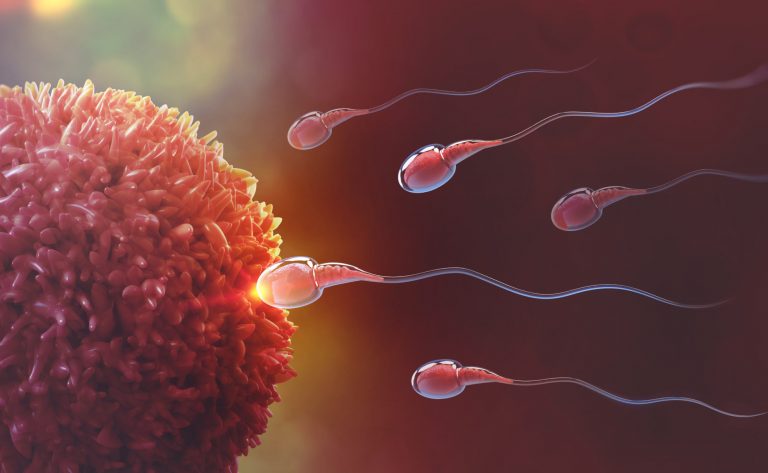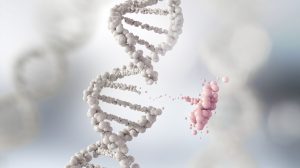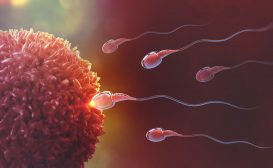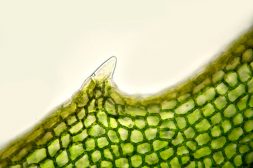Human Reproduction and Fertilization

A sperm cell fertilizing an ovum
Table of Contents
For the human species to continue surviving, it is essential that mature adults are capable of producing fertile offspring in order to ensure the perpetuity of the species and pass on the genetic information from generation to generation.
This is done via reproduction. The following is a step by step basis of how reproduction occurs from beginning to end.
Gametes
Before the initial cell can develop into a mature adult, the building blocks to create that cell must be available before fertilization can occur. Cells called gametes are produced by mature adults via meiosis. Each gamete contains half the genetic information needed to produce the final cell capable of growth.
- Human males produce sperm, a gamete produced in the testes
- Human females produce ovum, a gamete produced in the ovarian follicles
For a short period every month, the female gamete is readily available to be fertilized by sperm, to form a zygote.
Fertilization
Both gametes contain half the genetic information needed to produce the offspring. At fertilization, they fuse together, meaning all the genetic information required for the offspring to grow is present. For this to occur, sexual intercourse must occur in order for the semen (sperm) to be ejaculated and have the potential to fuse with the ovum.
Millions of sperm are released at the point of ejaculation, and when ejected, they ‘swim’ towards the female egg with their thread-like tail. This race towards the egg is fuelled by a tank of ATP that provides the energy for their effort.
After a long journey, many of the sperm will have died out in their effort to reach the egg. Some still have the potential to fertilize it. Each will attach itself to the ovum but only one would succeed in penetrating it. Enzymes contained in the acrosome (head) of the sperm break down the wall of the egg. When fertilized, the egg secretes various hormones to prevent it from being overwhelmed by the other millions of sperm attempting to fertilize it.
Read: Maintaining Transgender Fertility Post Treatment – BioTechniques. (2019, August 22). BioTechniques. https://www.biotechniques.com/general-interest/transgender-fertility-producing-viable-sperm-after-stopping-gender-affirming-medications/
The Zygote
Within hours of conception the fused gametes, a zygote, undergoes cell division. The presence of a hormone called progesterone prevents further female eggs being produced. Within the first week after conception, the fertilized egg travels towards the uterus, where the continued growth of the zygote will occur in the form of an embryo.
The continuation of the growing embryo is elaborated upon in the next tutorial.
References
- Fertilization – Embryology. (2020). Unsw.Edu.Au. https://embryology.med.unsw.edu.au/embryology/index.php/Fertilization
- Fertilization. (2020). Colostate.Edu. http://www.vivo.colostate.edu/hbooks/pathphys/reprod/fert/fert.html
- Alberts, B., Johnson, A., Lewis, J., Raff, M., Roberts, K., & Walter, P. (2018). Fertilization. Nih.Gov; Garland Science. https://www.ncbi.nlm.nih.gov/books/NBK26843/
You will also like...

Control of Growth & Development
Control of Growth & Development tutorials look at how the genetic makeup determines the biological processes on a da..

Ecosystem Succession
If the balance of nature is left untouched, landscapes can change dramatically over time. A previous ecosystem is supers..

Human Reproduction and Fertilization
For human species to obviate extinction, reproductive mature adults should be producing viable offspring in order to con..

Gibberellins and Gibberellic Acid
This tutorial describes the role of gibberellin family in plants. Find out the effects of gibberellin on plant growth an..

Non-Mendelian Inheritance
In this tutorial, find out more about certain types of inheritance that does not follow the Mendelian inheritance patter..

Plant Meristems and Growth
In plants, growth occurs in meristems, which are the site of repeated cell division of unspecialized cells. These cells ..
